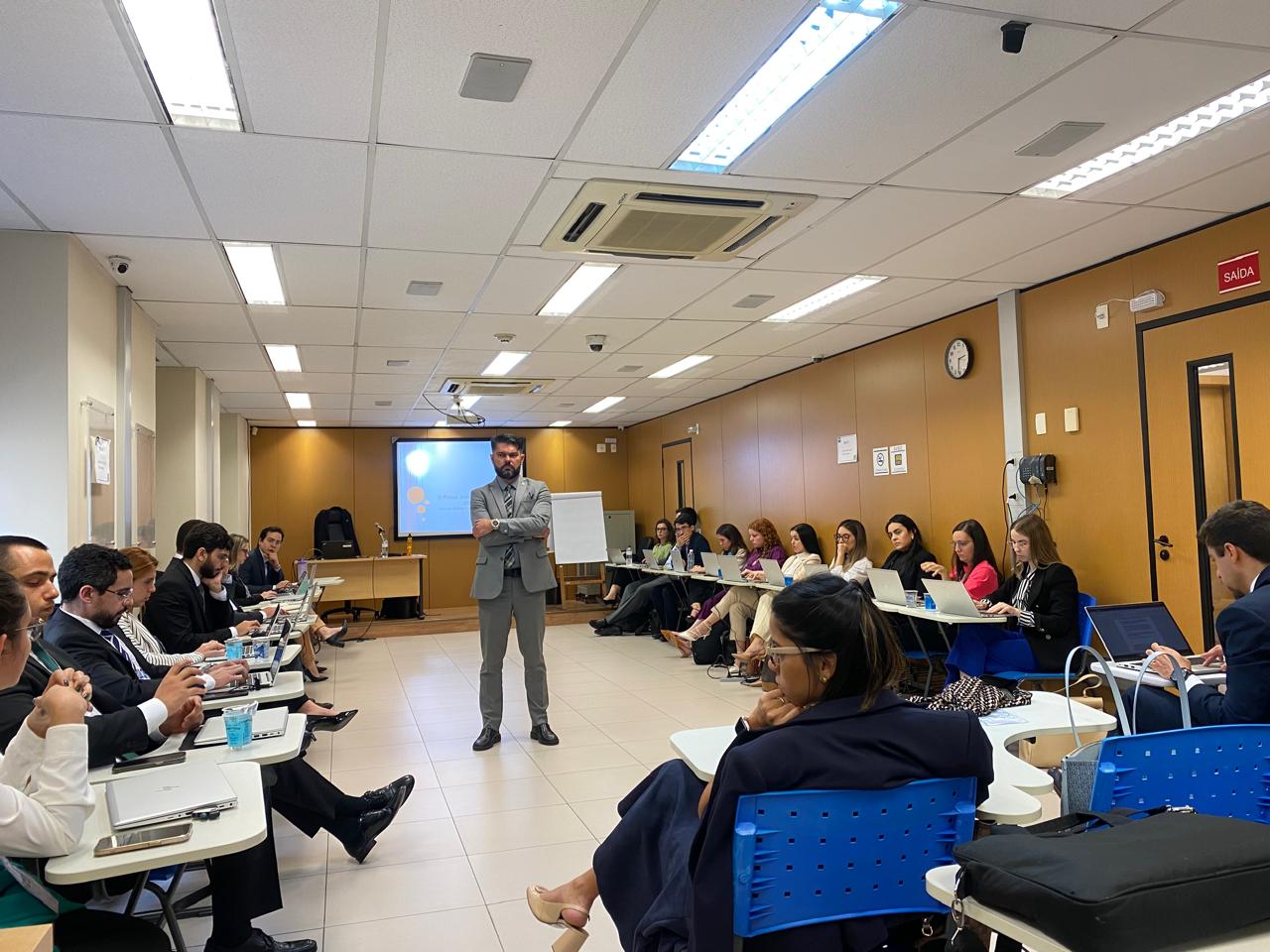
Judge Wellington Magalhães, Deputy Director of the Superior School of the Judges of the State of Tocantins (Esmat), taught the course on “The Judiciary and the Rights of the Indigenous Peoples” at the Superior School of the Judges of the State of Rio de Janiero (Emerj) this afternoon (July 16th of 2024). The class was attended by twenty-four new magistrates, recently appointed to the Court of Justice of the State of Rio de Janeiro.
Under the coordination of the National School for the Training and Improvement of Magistrates (Enfam), the initial training course has a workload of 480 class hours, spread over up to four months. The national module is compulsory and covers topics that aim to facilitate the insertion of new magistrates into the context of judicial activity in line with the local reality. The information covered in the module, as well as in the course, is theoretical and practical and it aims to raise awareness of the Judges of their profession and their role in the judiciary and in society.
Initial training in the context of the judiciary aims to develop the skills needed to critically exercise the role of Judges in the effective application of justice in a society in permanent transformation and their integration into the institution, the community and the world, by guiding their actions on the basis of constitutional principles, with ethics and humanism as integrators of the other knowledge of training and professional practice.
For magistrate Wellington Magalhães, “the opportunity to join the teaching staff of the National School for the Training of Magistrates is of the utmost importance, especially in initial training, because at this stage of the career there are many fears and challenges. Therefore, sharing our practical experience with new Judges is fundamental for the dialog between practice and theory. When we pass the exams, we see a lot of theory and little practice. This is a problem that we need to solve, because otherwise we could compromise the quality of the judicial service”.




